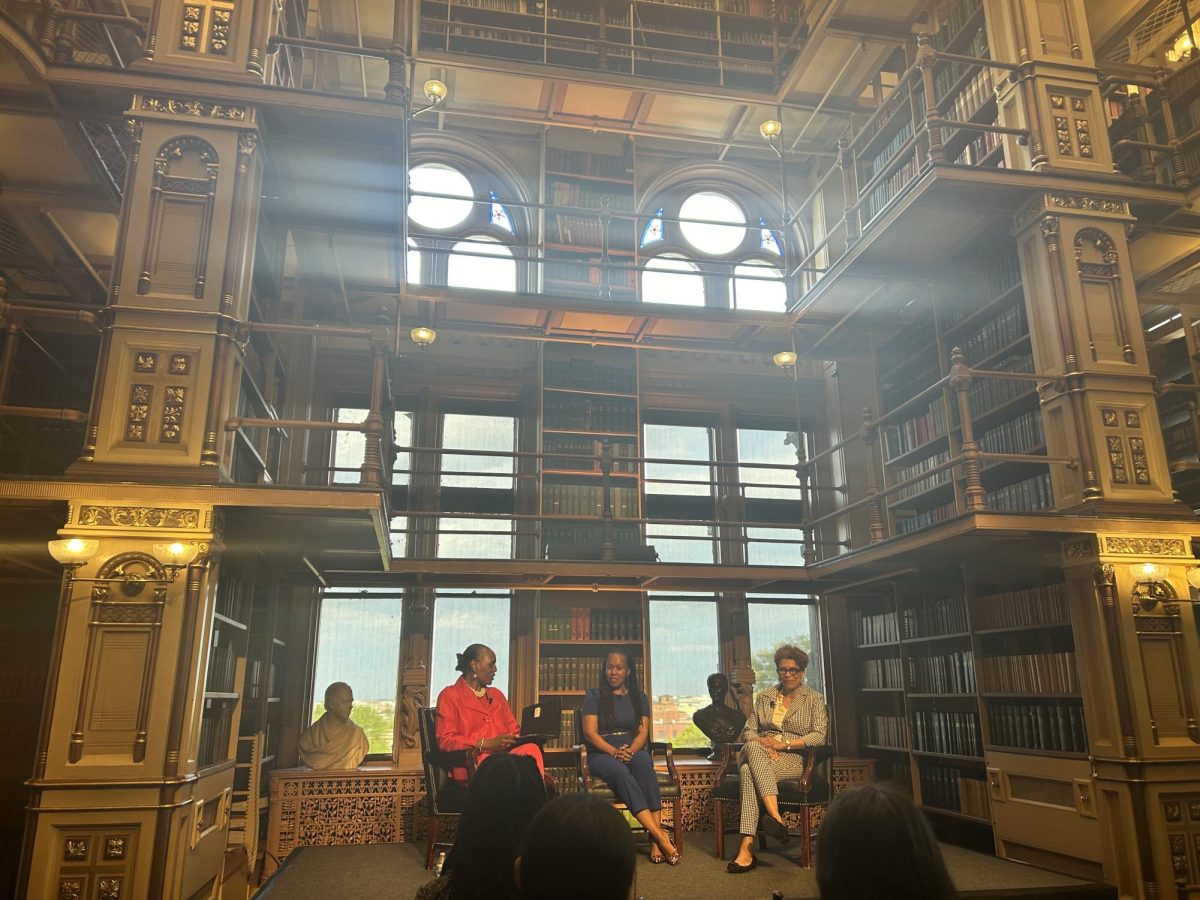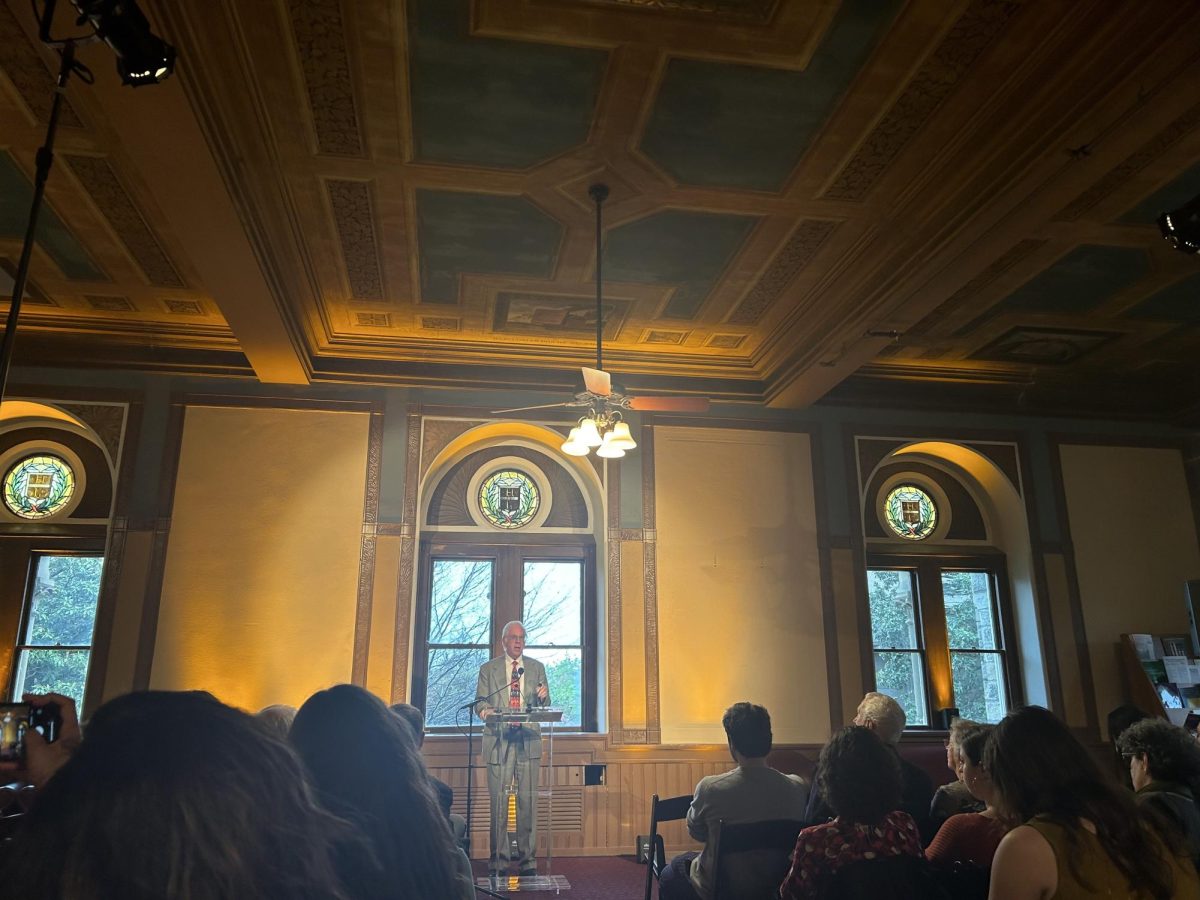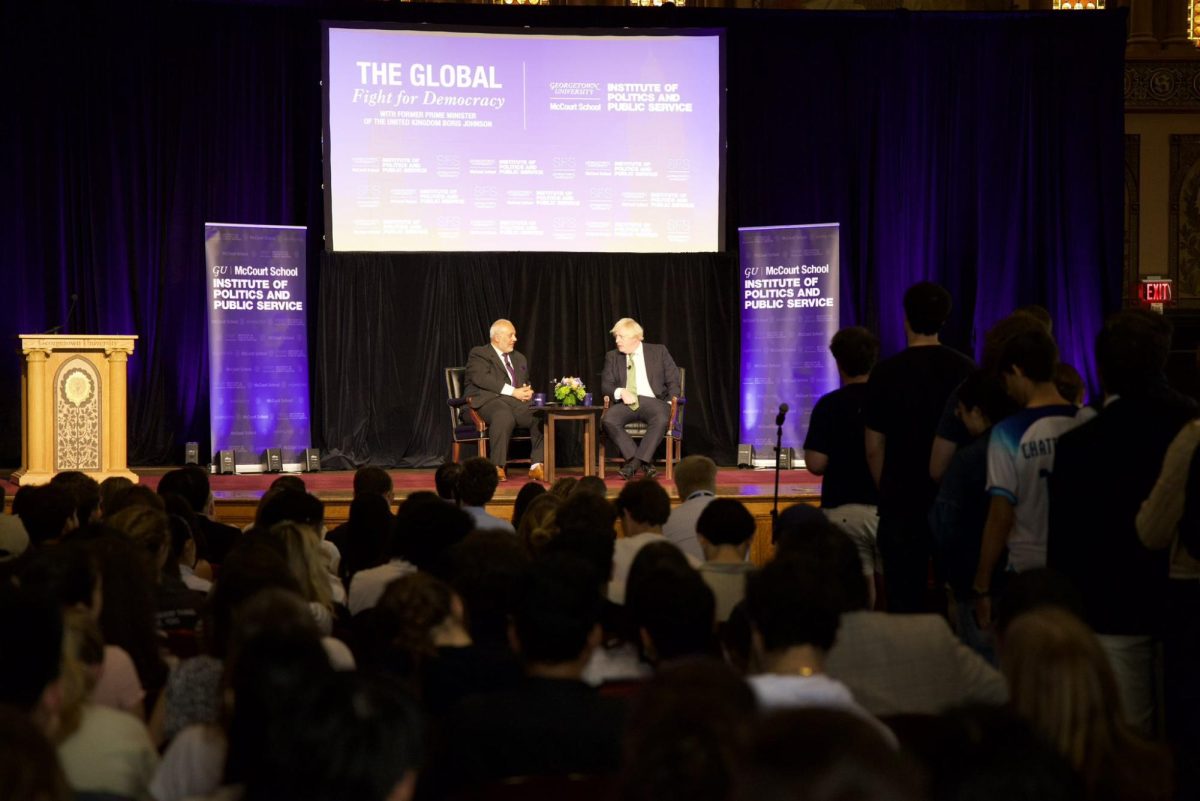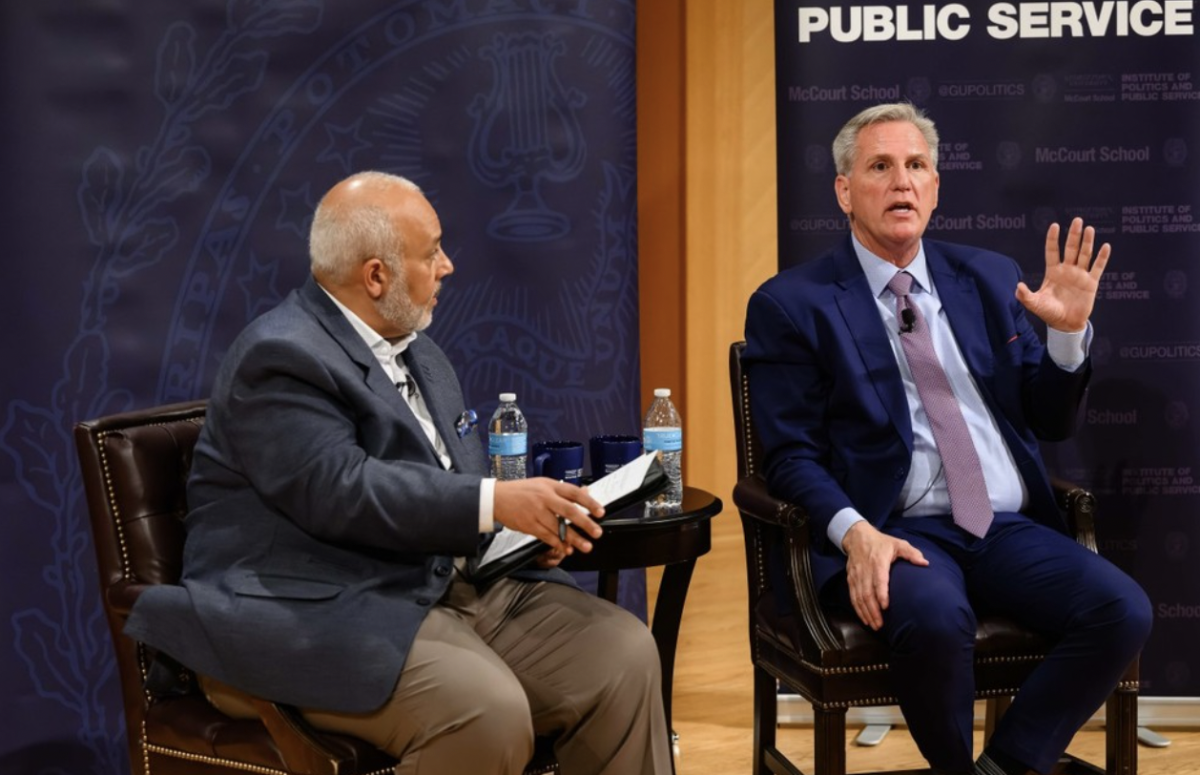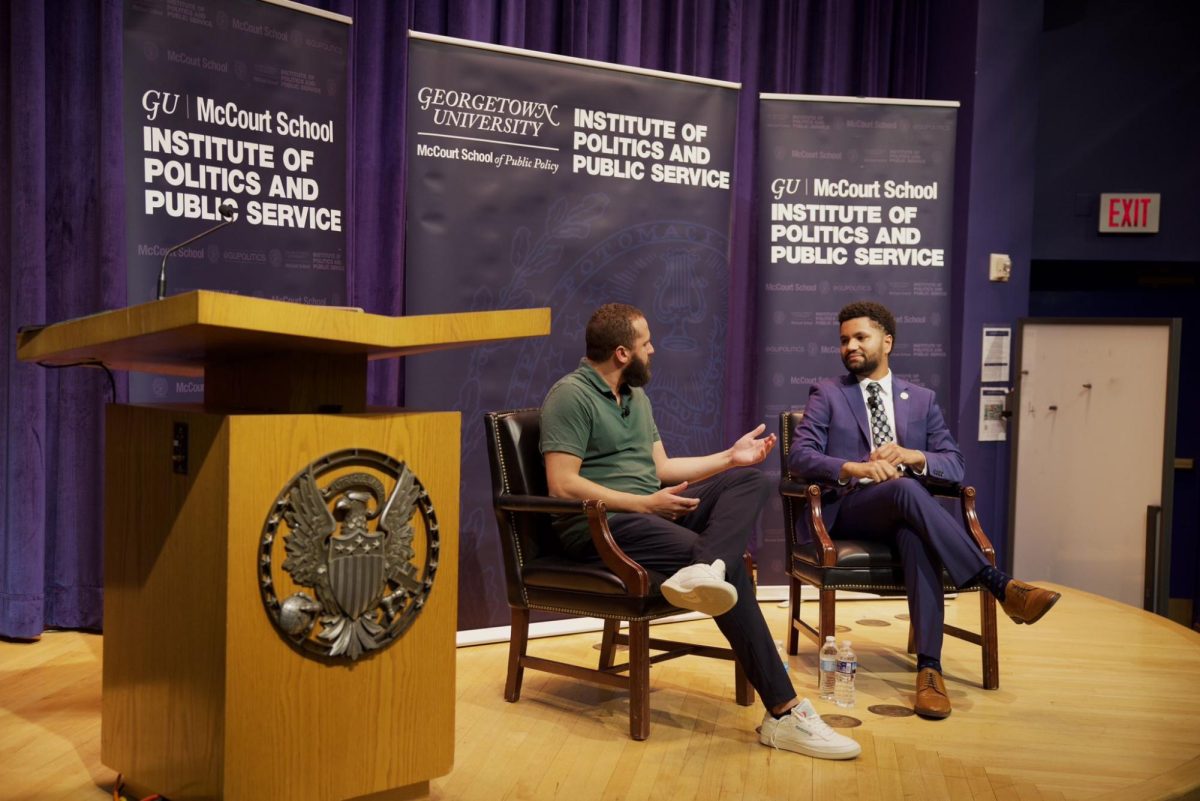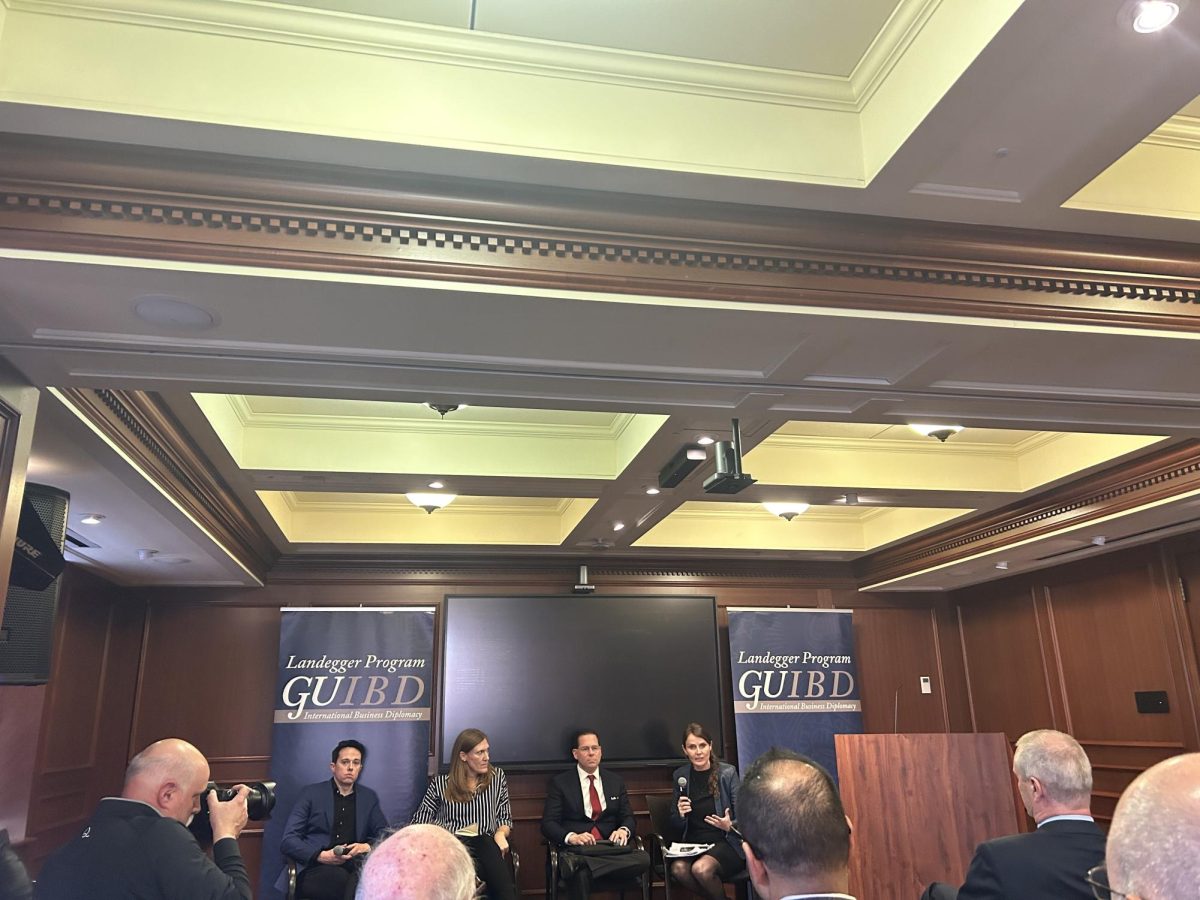Five journalists discussed the intersection of faith and policies and its role in the upcoming presidential election in a Feb. 13 conversation at Georgetown University.
The Initiative on Catholic Social Thought and Public Life (CST) and the Institute of Politics and Public Service (GU Politics) hosted the conversation as part of the Faith and Faithful Series, which aims to discuss the relationships between faith and politics. The panelists said faith will likely influence the outcome of November’s presidential election — even though its role in politics has shifted significantly in the past few decades — and talked about changes in the voting patterns of white Catholics, white Evangelists, Black Christians, Latino Christians, Muslims and other groups.
John Carr, founder of the Initiative on Catholic Social Thought and Public Life, began the dialogue by expressing his concern about the declining involvement of faith in the election. Carr said many voters struggle to reconcile the differences between their faith and political beliefs.
“People of faith often vote their party more than their religious convictions,” Carr said at the event. “On the other hand, many believers struggle to reconcile their faith with their life, including their public responsibilities.”
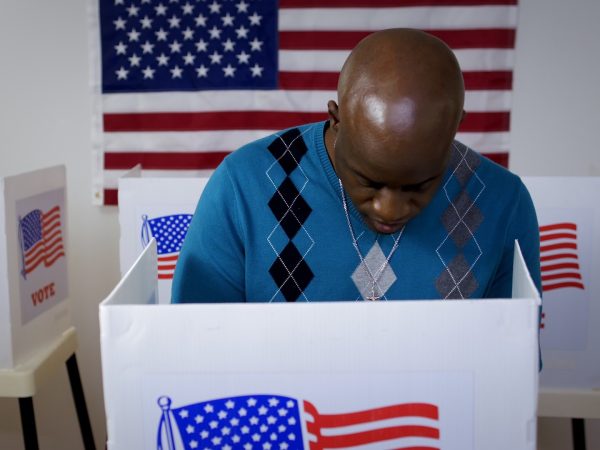
Robert Costa, chief election and campaign correspondent for CBS News, discussed his view on the Trump campaign and its seeming disconnect from religion. In a November report, Costa wrote about his worry of a church disturbed by political debates, which has divided the church and weakened the voice of religion.
Costa said Trump seeks to connect with his potential voting base, from traditional Catholics to white evangelical Christians, on a political rather than personal level.
“Trump offered them what was essentially a political bargain, a transaction, that even though he did not identify with them in terms of values, or life history, he was offering them a path to victory,” Costa said at the event.
As atheism has become more common in the United States, so has religious polarization. In 1972, only 5% of Americans identified as atheists, while in 2022, 29% of Americans did. Pew Research Center estimates that 72% of American atheists voted for Biden in 2020. In contrast, only 12% of voters for the Republican party are irreligious.
Ryan Burge, an associate professor of political science at Eastern Illinois University, said despite the rise of atheism, members of Congress are often much more religious than their constituents.
“I think it is very interesting that one-third of the Americans were not religious, yet less than five members of the Congress claim no religious affiliation,” Burge said. “When we talk about descriptive representation, we look completely odd in that respect.”
Burge expressed his concerns about the future of political parties, especially the Democratic Party. He said the party needed to find a middle ground for different religious groups that often espouse conflicting ideas.
“How do you hold together a coalition that is increasingly a number of secular voters, and then a significant number of Black Protestants, Hispanic Catholics, Muslims?” Burge said.
Michael Sean Winters, a columnist for the National Catholic Reporter, discussed the impact of Catholicism in the Democratic Party. Winters said Catholic Democrats are hesitant to let their faith influence voting on topics such as abortion and gender issues because they often fail to resolve the dissonance between their political ideology and their religious beliefs.
“The number of Catholics who allow their faith to really dictate their politics is decreasing,” Winters said. “Catholic Democrats do not use their faith to challenge some of the more radical positions on abortion or transgender issues or things like that.”
Laura Barrón-López, the White House correspondent for the PBS NewsHour and a Spring 2024 GU Politics Fellow, discussed President Joe Biden’s relationship with faith.
Barrón-López said that President Biden, though a devout Catholic, leans further left on abortion than his faith would indicate because of his ties to the Democratic party.
“You’ve also seen that often when he talks about abortion he uses the term pro-choice, choice, life, because he also for a long time was not comfortable using the word ‘abortion,’ and I think that is because of his background and because of his faith,” Barrón-López said.
Barrón-López said faith and its interplay with reproductive rights will be a major element in the presidential election.
“I say that it cannot be overstated how much abortion is going to be a factor in this election,” Barrón-López said.








